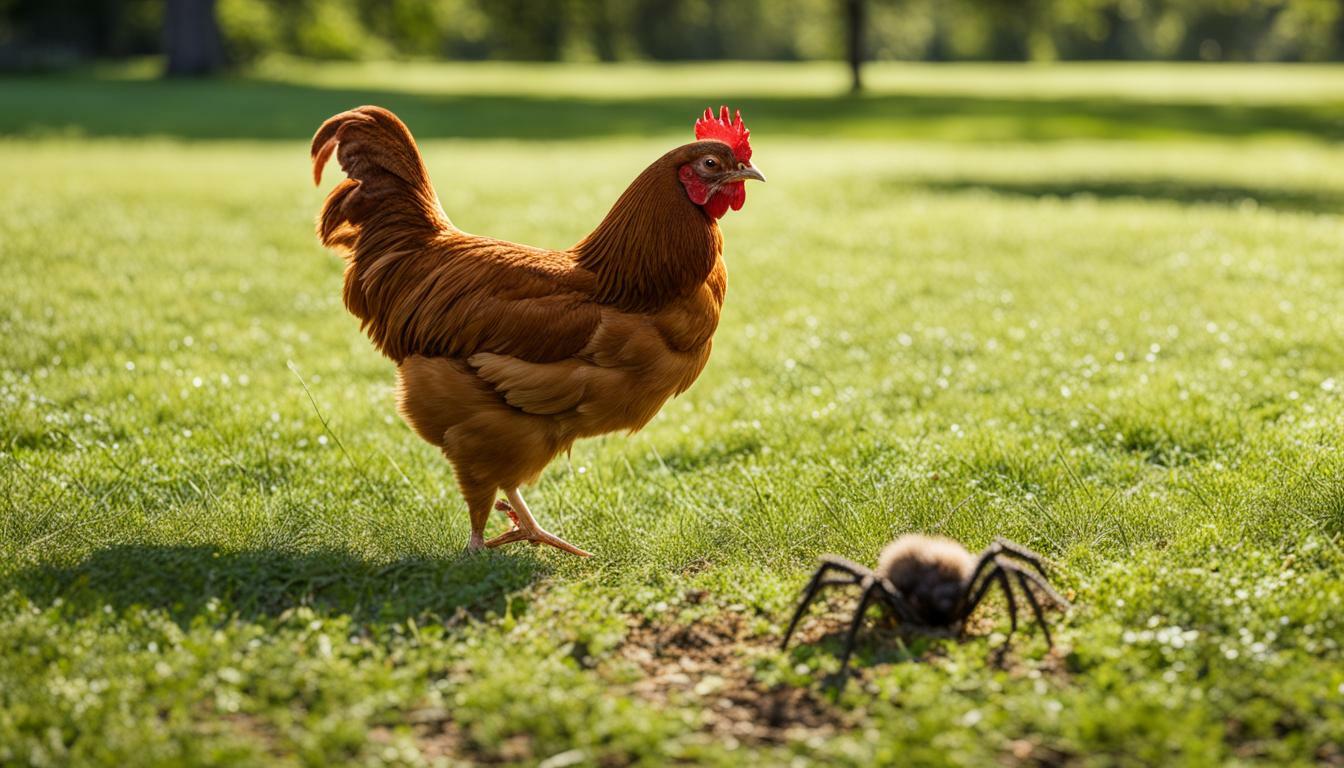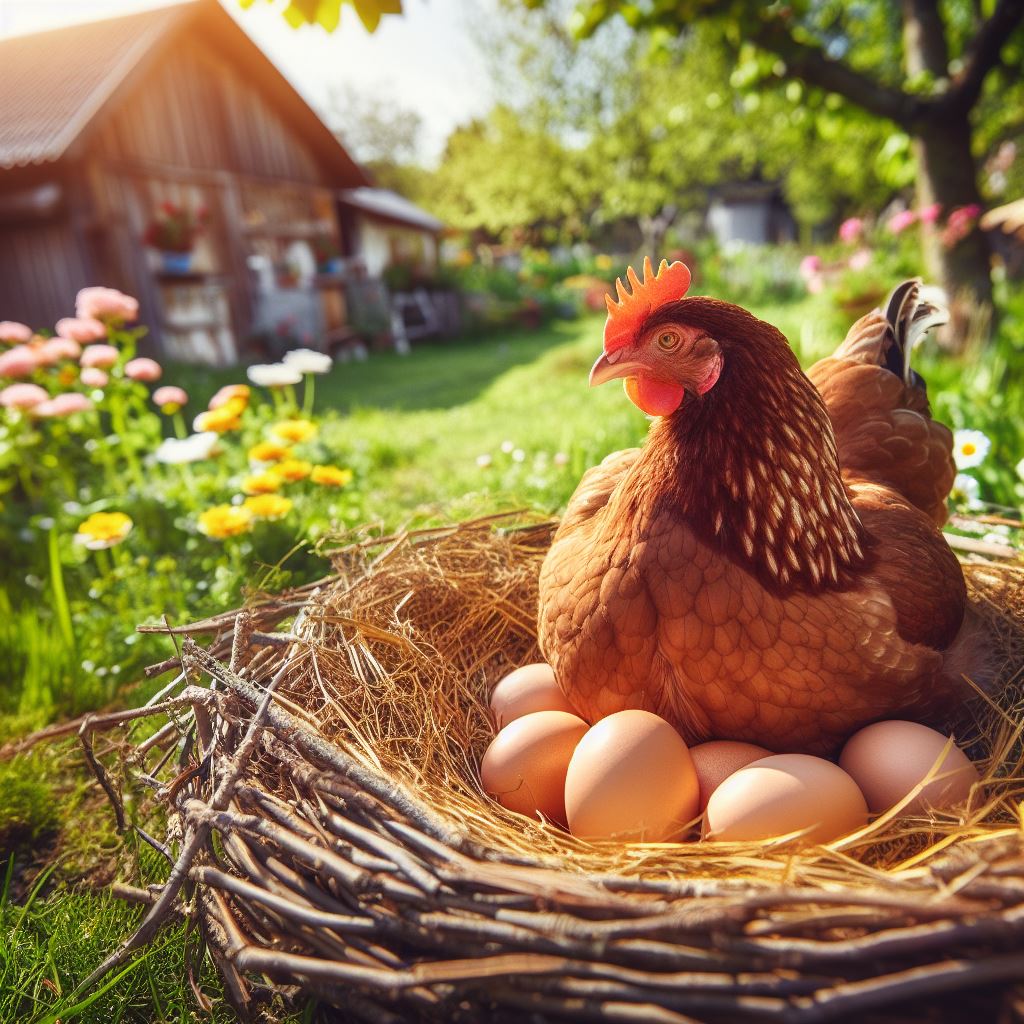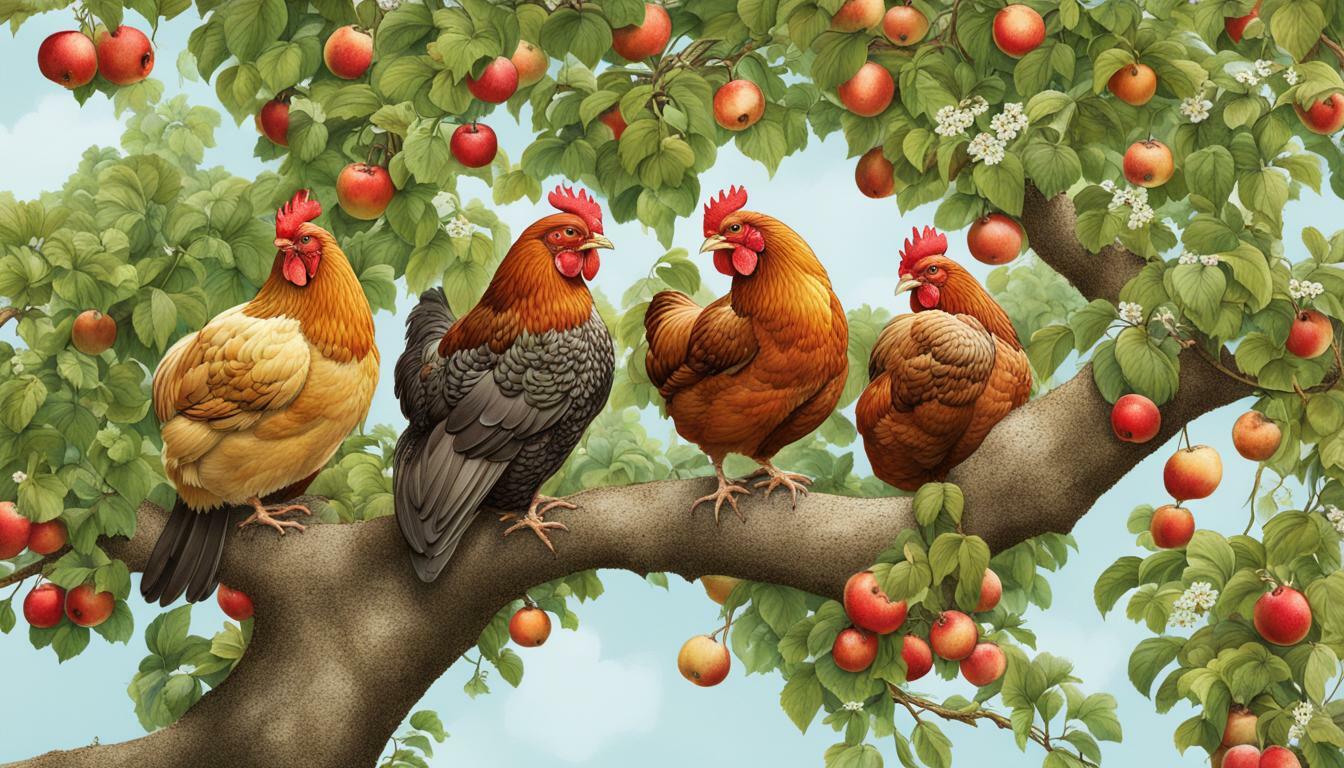Can Chickens Eat Spiders? Discover the Answer Today!

Table of content:
- Are Spiders Good for Chickens?
- Do Chickens Eat Black Widows?
- What Bugs Can Chickens Eat?
- Can Chickens Eat Poisonous Spiders?
- Do Chickens Eat Brown Recluse Spiders?
- Will Chickens Eat Spiders to Get Protein?
- Do Spiders Provide Protein for Chickens?
- What Happens If a Chicken Eats a Spider?
- Do Chickens Eat Spiders and Their Webs?
- Final Thoughts
Chickens are omnivores, meaning they eat both plants and animals. Many backyard chicken keepers wonder if chickens can eat spiders and if it’s safe. The short answer is yes, chickens can and do eat spiders as a source of protein. However, there are some things to consider before intentionally feeding spiders to your flock.
Are Spiders Good for Chickens?
Are spiders good for chickens? In moderation, spiders can provide beneficial nutrients. Spiders contain protein, fat, vitamins, and minerals that chickens need in their diet.
Here are some of the nutrients chickens can get from eating spiders:
- Protein – Spiders provide amino acids that chickens require for growth, egg production, and body maintenance. The protein content of spiders can range from 65-85%.
- Fat – Spiders contain polyunsaturated and saturated fats. Fat provides chickens energy and aids in vitamin absorption.
- Iron – Spiders have high iron content, which helps prevent anemia and enhances red blood cell health in chickens.
- Calcium – The exoskeleton of spiders contains calcium which chickens need for eggshell formation and bone health.
- B Vitamins – Thiamine, riboflavin, and niacin in spiders support chicken metabolism and egg production.
So in moderation, spiders can be a nutritious supplement to a chicken’s diet. They provide high-quality protein and important vitamins/minerals. Just a few spiders here and there can benefit chickens.
Do Chickens Eat Black Widows?
Do chickens eat black widows? This is a common question for chicken keepers, especially in areas where black widows are prevalent.
The short answer is yes, chickens will eat black widows, but with some major health risks.
Black widow spiders are venomous spiders that can inject neurotoxic venom when they bite. Their venom is designed to paralyze and kill insect or animal prey.
While most black widow bites cause mild symptoms in humans, the venom can be far more toxic to chickens due to their smaller size. In rare cases, a black widow bite can kill a chicken.
Chickens that eat a black widow spider may exhibit these poisoning symptoms:
- Trembling, shaking, or convulsing
- Loss of motor control and paralysis
- Difficulty breathing
- Swollen face, comb, wattles
- Pale combs and wattles
- Drop in egg production
- Lethargy, weakness
Eating even one black widow spider puts a chicken’s health at serious risk. The venom can cause long-term organ damage or nervous system disruption.
To keep your flock safe, control black widow populations in the coop and prevent access while free-ranging. Check for widows before allowing chickens to forage an area. If a chicken eats a widow, monitor them closely and consult a vet if symptoms develop.
What Bugs Can Chickens Eat?
What bugs can chickens eat? Chickens are natural insectivores and will eat a wide variety of insects, bugs, and critters they can capture.
Here are some examples of safe bugs and insects for chickens:
- Crickets – A favorite treat! High in calcium and protein. Can be given live or dried.
- Mealworms – Contain essential amino acids. Can be bought dried as chicken treats.
- Earthworms – Excellent source of protein when chickens scratch and peck in soil.
- Beetles – Crunchy source of fat, protein, and minerals. Both adults and larvae.
- Caterpillars – Many types are safe and nutritious, like tomato hornworms. Avoid hairy varieties which can cause choking.
- Grasshoppers – Packed with vitamin A, protein, and antioxidants. Fun to chase and peck.
- Flies – Great source of essential fatty acids when caught live. Dried flies are sold as treats.
- Moths – Contain healthy fats like lauric and capric acid. Shake larvae from trees.
- Butterflies – Protein-rich adults are safe if chickens can catch them in flight!
Chickens also will eat spiders, termites, snails, slugs, beetle larvae, and other arthropods they find while foraging. These bugs provide a healthy diet full of protein, amino acids, and vitamins when consumed in moderation. Monitor for colorful species which can indicate toxicity.
Can Chickens Eat Poisonous Spiders?
Can chickens eat poisonous spiders? The short answer is – they can, but it puts their health at great risk.
There are a few types of venomous spiders that can be extremely toxic to chickens if ingested:
- Black widow spiders – As discussed above, venom is neurotoxic to chickens.
- Brown recluse spiders – Venom destroys red blood cells and causes organ damage.
- Mouse spiders – One bite can kill a small chicken with severe envenomating.
- Yellow sac spiders – Venom can cause nausea, restlessness and lethargy.
- Brazilian wandering spiders – Considered one of the most venomous spiders globally.
Any spider with potent venom toxins is best avoided by chickens. The venom that is designed to kill insect or mammalian prey can be equally as devastating to a chicken. Even non-lethal bites can cause illness or decrease egg production.
It only takes ingesting one poisonous spider for chickens to feel negative effects. Monitor your coop and run area to remove hazardous spiders. Also check for spiders hiding within straw bales or wood piles before allowing foraging. Prevention is key to help ensure chickens do not eat venomous spiders in the environment.
Do Chickens Eat Brown Recluse Spiders?
A common question chicken keepers have is “Do chickens eat brown recluse spiders?”
Brown recluse spiders are venomous spiders found throughout the southern and central United States. They prefer dark, secluded spaces like piles of wood or debris.
Chickens may intentionally eat brown recluses while scavenging or inadvertently ingest them when cleaning out a run. If chickens eat brown recluse spiders, it can have devastating effects on their health.
Recluse venom contains hemotoxic compounds that destroy red blood cells. It also causes widespread tissue and organ damage. Chickens are very vulnerable to their venom.
Some symptoms chickens may show after ingesting recluses include:
- Loss of appetite
- Lethargy and weakness
- Dehydration
- Diarrhea or soft eggs
- Bruising, blistering, and necrosis on skin or combs
- Pale combs and wattles
- Rapid breathing
- Trembling
- Decreased egg production
- Death (in some cases)
Brown recluse bites require rapid veterinary treatment. However, preventing recluse exposure is best. Carefully check areas for webs before allowing chickens to forage. Remove piles of debris around the coop, install insecticide dusts, and seal up cracks or holes. Ensuring chickens do not eat brown recluse spiders should be a priority for their health and safety.
Will Chickens Eat Spiders to Get Protein?
Will chickens eat spiders to get protein? Absolutely! Chickens are opportunistic omnivores and will readily eat spiders as a protein source.
Protein is an essential macronutrient for chickens. It provides amino acids needed for muscle growth, feathering, egg production, and overall body maintenance.
Adult chickens require 15-20% dietary protein depending on age and egg production. Protein supports egg development and yolk formation. Molting chickens have increased protein needs.
Common protein sources for chickens include:
- Insects (crickets, mealworms, flies)
- Earthworms
- Grubs and larvae
- Small lizards or amphibians
- Mice or small snakes
- Seeds and grains
Spiders provide a concentrated protein boost when chickens catch and consume them. Just a few spiders can meet a portion of a chicken’s daily protein requirement.
Chickens have a natural drive to forage and catch live prey. Their insectivore instincts will lead them to pursue spiders, worms, grasshoppers and any other protein-rich invertebrates they encounter while ranging.
So be assured that chickens will readily eat any spiders lurking in the coop or yard to fulfill their protein needs!
Do Spiders Provide Protein for Chickens?
Do spiders provide protein for chickens? Yes, spiders offer an excellent source of high-quality protein for backyard chickens. Here’s an overview:
- High in protein – Spiders contains 60-70% protein by weight. Compare that to 10-25% in insects or 7% in chicken feed.
- Complete amino acid profile – Spiders have all 9 essential amino acids chickens require in their diet. Lysine and arginine are especially abundant.
- Highly digestible – Avian systems can easily extract and absorb the protein within an exoskeleton. Soft abdomens also help.
- Packed with nutrients – In addition to protein, spiders provide iron, phosphorus, selenium, B vitamins, fatty acids, and more.
- Concentrated source – A few small spiders can provide a large punch of protein compared to bugs or seeds.
- Foraging enrichment – Chasing down live spiders encourages natural foraging behavior in chickens.
- Supports egg production – The amino acids from spider protein are utilized to form egg whites, yolks, and shells.
- Aids growth and feathering – Younger chickens need ample protein for proper development and feather growth.
For these reasons, spiders are a fantastic supplemental protein source for backyard chickens. Whether discovered in the coop or provided intentionally, this arachnid snack delivers a nutritious protein boost.
What Happens If a Chicken Eats a Spider?
Chicken keepers sometimes witness their hens eagerly devouring a juicy spider and wonder “What happens if a chicken eats a spider?”
Assuming the spider species is not venomous, chickens can safely eat spiders with the following benefits:
- Protein nutrition – Spiders provide a quick burst of protein to support muscle growth, egg-laying, and vitamin absorption.
- Foraging enrichment – Chasing and catching spiders allows chickens to engage in natural foraging behaviors. This promotes mental stimulation.
- Pest control – Eating spiders helps control populations around the coop and yard area.
- Nutrient absorption – The soft abdomen of a spider allows chickens to easily digest and utilize nutrients like amino acids.
- Macronutrient balance – Spiders provide a balance of protein, healthy fats, and micronutrients like iron, selenium, and B vitamins.
- Supports molting – Increased protein from spiders aids in healthy feather regrowth during the molting period.
- Fun and rewarding! – Chickens get mental and physical enrichment from actively hunting spiders and other insect prey. It’s great exercise!
The biggest risk with chickens eating spiders is ingesting venomous species like black widows or brown recluses. Always check your coop and run area to remove any potentially toxic spiders. But otherwise, an occasional spider snack provides a safe and nutritious dietary supplement.
Do Chickens Eat Spiders and Their Webs?
You may notice your chickens pecking at spiderwebs. So, do chickens eat spiders and their webs?
Chickens will readily consume any small spiders lurking in the webs they discover. Cobwebs harbor critters like mosquitoes, flies, beetles and other tasty snacks chickens love.
Eating spiderwebs themselves provides a few benefits:
- Protein – Spider silk contains small amounts of protein. The webs can be digested.
- Pest control – Removes insect habitat and food sources around the coop.
- Boredom buster – Pecking at and tearing down webs provides mental stimulation.
- Nesting material – Small bits of web may be incorporated into nest box bedding.
However, there are also some downsides to chickens ingesting too many webs:
- Intestinal blockages – Eating large wads of webbing can obstruct the digestive tract.
- Choking hazards – Long strands of silk wrapped around the tongue or throat area poses a choking risk.
- Pesticide exposure – Webs may contain chemical residues if spiders consumed poisoned insects.
- Allergies – Some chickens may be allergic to spider proteins in the silk.
While most chickens seem to enjoy picking at cobwebs, try to limit their consumption to prevent blockages or choking. Provide ample foraging areas and scratch to reduce boredom pecking and destructive behaviors.
Final Thoughts
Chickens can safely eat spiders in moderation as part of their omnivorous diet. Small amounts of spiders provide excellent protein, amino acids, minerals, and nutrients chickens need. Just be sure to exclude any venomous spider species. Allow your flock supervised foraging time to engage in natural bug catching behaviors. With some precautions, spiders can be a beneficial supplemental food source for backyard chickens.
Welcome. I’m Adreena Shanum, the proud owner of this website, and I am incredibly passionate about animals, especially poultry. I founded adreenapets.com as a labor of love, stemming from my desire to share my knowledge and experiences with poultry enthusiasts worldwide.




